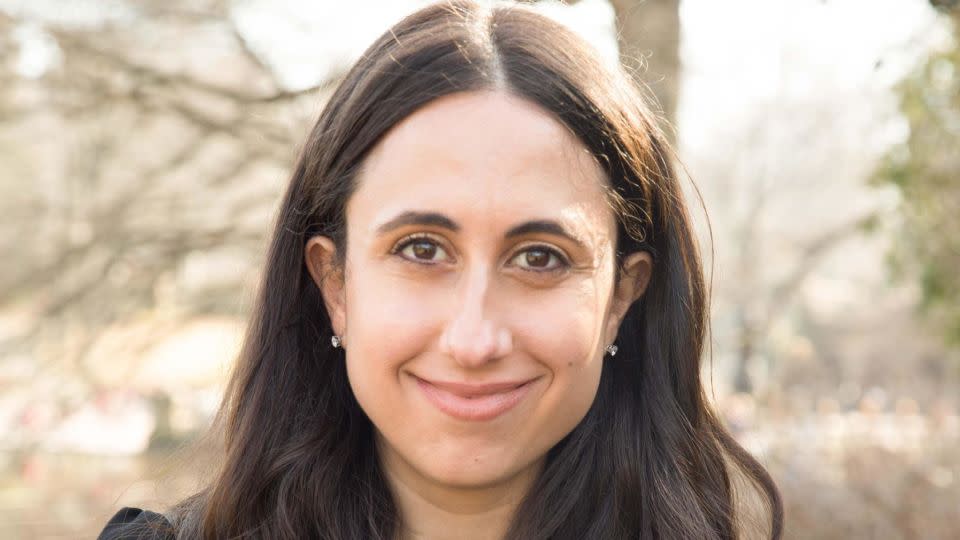Opinion: Here’s one more reason to stop shaming parents
Editor’s Note: Kara Alaimo, an associate professor of communication at Fairleigh Dickinson University, writes about issues affecting women and social media. Her book “Over the Influence: Why Social Media Is Toxic for Women and Girls — And How We Can Take It Back” will be published by Alcove Press on March 5, 2024. Follow her on Instagram, Facebook and X. The opinions expressed in this commentary are her own. Read more opinion on CNN.
For years, experts and self-anointed experts like momfluencers have been telling parents like me that following certain practices would get our kids to put themselves to sleep and sleep through the night. Now, a new study suggests the reason some kids don’t sleep well is because they’re genetically predisposed to insomnia — not because their moms can’t get sleep training right. I hope these findings will prompt our society to radically rethink the way parents — but, let’s face it, especially mothers — are instructed, judged and shamed for our parenting practices.

The new research, published Wednesday in the Journal of Child Psychology and Psychiatry, finds that children who have genetic predispositions for insomnia are more likely to have trouble falling asleep and tend to wake up more throughout the night.
This makes perfect sense to me because, as a baby, my first child was a terrible sleeper. For the first several years of her life, it took her an incredibly long time to fall asleep, and she woke up regularly all night long. Reading this study, I have to wonder if maybe the reason was genetic.
Of course, as a new mom, I was asked by everyone — pediatricians, family members, fellow mamas, strangers I passed on the sidewalk — how my baby was sleeping, and when I said it wasn’t going well, I almost always got the same answer: I needed to try harder to sleep train her. The problem, most people seemed to assume, was that I wasn’t tough enough to let her cry it out for a few nights until she got the hang of things.
Sleep training — or letting a baby cry until they learn how to sleep — feels like the predominant advice given to parents these days, though there are also plenty of people who will shame parents for doing so (of course). I tried this method with my first child. It didn’t work. This new study suggests it’s possible that it wasn’t my parenting after all — maybe my kid’s genetics just make it difficult for her to sleep.
There’s a bigger lesson here that goes far beyond what parents should be taught about getting kids to sleep. It’s that there isn’t a right way to parent all kids because every one is different. So, when we see a momfluencer share a TikTok with the tips that help her get her kid magically to sleep, what she’s sharing is what works for her child in the context of her family’s circumstances. That’s often quite different from what will work for others.
Yet so many moms are left feeling like they can’t cut it if other people’s recipes don’t work for them. As I argue in my forthcoming book “Over the Influence: Why Social Media is Toxic for Women and Girls and How We Can Take It Back,” all this advice targeted at moms on social media can help explain why, as the use of social networks exploded from 2000-2015, the rate of postpartum depression among women who gave birth in hospitals rose by a rate of seven, according to a 2019 study.
I don’t want to judge momfluencers too harshly here. Amy Tuteur, an obstetrician I interviewed for my book, pointed out that many moms who share their tips online are doing so because it’s one of the only ways moms can get validation in our society. “There’s a lot of doubt involved in parenting,” she told me. “You never know if you’re doing it the right way, and it’s not like your child is helping you. Your child isn’t saying, ‘Thank you for sending me to time out and helping me learn about delayed gratification.’ No, they’re lying there on the floor screaming at you.”
But, when we see these posts, we should take them for what they are: advice that worked for one family. If it’s helpful (and safe), take it — but if it doesn’t work given the (likely very different) characteristics of our own kid and life, it doesn’t mean we’ve failed. It just means we’re different!
Our society, too, should stop preaching what works for some people as universal gospel. The study released this week reminds us that when a kid struggles, it’s often not their parent’s fault. So, it would be a good idea for everyone to think twice before pushing their parenting strategies on others — and perhaps, instead, acknowledge how very hard parenting can be. Not having to deal with these kinds of messages of failure would at least give parents one less thing to lose sleep over.
For more CNN news and newsletters create an account at CNN.com


